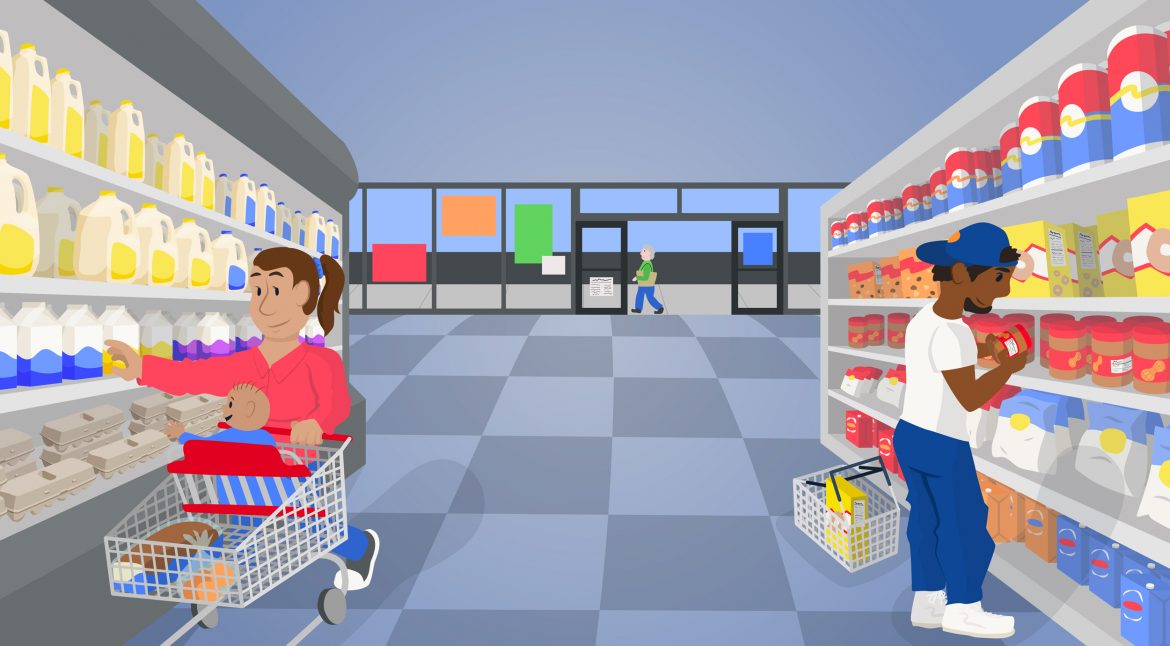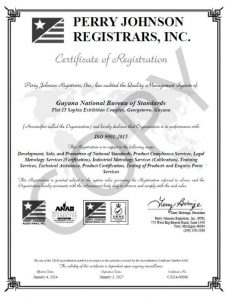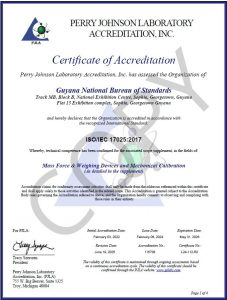Although the Guyana National Bureau of Standards (GNBS) has been executing its mandate to ensure that all weighing and measuring instruments used in trade are verified (stamped) and relies on consumers to do their part in trade transactions to guarantee that they are provided with accurate measurements of products.
Daily, consumers visit the community shops, markets, supermarkets, and other retail outlets to purchase a variety of groceries, such as rice, flour, sugar, meats, ground provisions, preserved fruits, and cooking oil by weights and measures. Consumers also spend large sums of money to buy building materials and hardware items such as sand, stone, nails, screws and wires by weights and measures. For those looking to buy uniform (cloth) and other materials by length you are also included.
Unfortunately, some consumers are not exercising the level of vigilance required to ensure that the quantities delivered to them are what they have requested and are paying for. This needs to change for their full protection.
The GNBS, as of this month (July), recommenced the verification of measuring instruments used in trade for the second half of 2023, but this crucial process for measurement accuracy, needs the support of consumers who are knowledgeable and demanding of their rightful measures, especially when transactions seem odd or questionable.
To reduce these doubtful measurement transactions, the GNBS implores consumers to apply the following tips when purchasing goods by weights and measures:
- Buy goods from vendors who are using verified scales and other verified measuring instruments. If used properly, verified instruments give correct weights or measures.
- Look for GNBS verification seals on measuring instruments. The affixed GNBS seals indicate whether scales and other instruments were verified for the current period.
- Make sure the instrument used to weigh or measure your goods is clean and tidy. Dirty scales often give inaccurate weights and measures and can cause the contamination of goods.
- Make sure that you can see the measuring indicator of scales. Ensure that the scale is positioned in a manner that will allow you to see the weighing process.
- Do not buy from vendors or shopkeepers using the domestic (kitchen) scales. These scales are not approved for commercial trade because their internal mechanisms are quickly worn, hence they give inaccurate weights.
- Buy in metric quantities. Instruments used in the marketplace are in metric units and by requesting goods in metric quantities, it is highly likely that the correct amount will be supplied to you.
- Buy all solids by weight instead of measure. Rice, peas, and channa are solid goods and must be weighed, not measured. Request these goods in grams and kilograms.
- Buy prepackaged goods that are labelled with the quantity (net contents). For example 450 grams, 1 kilogram, 3 litres. The GNBS has commenced the checking of net contents of products to ensure that quantities indicated on packages are correct.
- Do not accept a purchase if you have doubts about your weight or measure.
- Call the GNBS hotline or visit the GNBS office in your Region to make your complaints if the need arises. Remember, by making your complaint you will protect other unsuspecting consumers from receiving short measures.
The GNBS, through its Legal Metrology Department, remains resolute in its efforts to maintain a functional and transparent measurement system in Guyana, which allows for accurate and reliable measurements in the trade of goods and services consumers buy.
For further information, please contact GNBS on telephone numbers: 219-0069, 219-0065, 2190062 or WhatsApp: 6924627.






